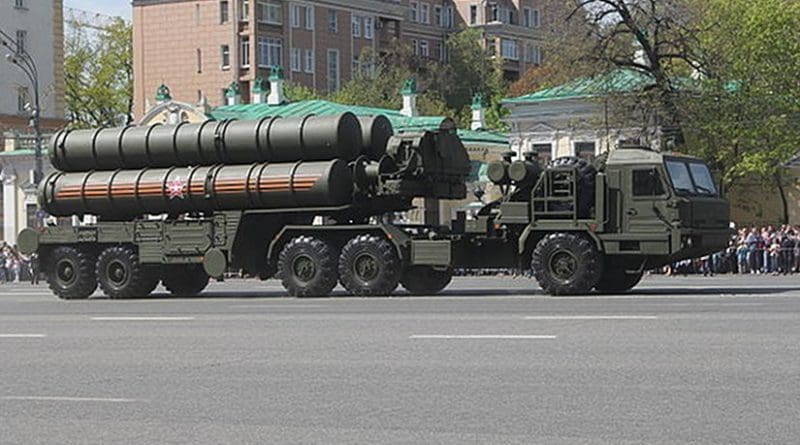Turkey To Pay $2.5B For Russia’s S-400 Anti-Missile System
By MINA
Ankara and Moscow have reportedly thrashed out the much-talked-over purchase of Russia’s S-400 advanced anti-missile system, Bloomberg reports. The deal will allegedly see two batteries being delivered to Turkey as well as a technology transfer.
The parties to the deal, which has been in the works since November 2016, have finally agreed on the price of the contract, which should amount to $2.5 billion, the magazine reported Wednesday, citing an anonymous Turkish official.
However, no timeframe has been set as to the signing of the deal yet, as the countries are still discussing the technical aspects, the official told Bloomberg, adding that he expects the negotiations to last for about a year.
One of the cornerstones of the agreement, according to the Turkish official, is that it envisions not only transfer of the state-of-the-art complexes but also that of technology. In addition to the two S-400 batteries, which would be manufactured in Russia and supplied to Turkey, the deal would enable Ankara to assemble two missile systems on its own.
For now, it’s not clear how much time will pass for the systems to be installed on Turkish soil once the deal is finalized, the unnamed official said, noting that Moscow doesn’t have any spare missile systems in stock and will have to embark on their construction first.
READ MORE: Turkey ‘in talks to buy Russian S-400 anti-missile system’ after snubbing China deal
He suggested that to speed up the delivery Moscow might take away a missile system from a batch bound for another customer and send it to Turkey instead. The official did not specify the country, however.
Russia had previously secured contracts with India and China to procure S-400 anti-missile systems.
The systems would be incompatible with NATO equipment stationed in Turkey, a long-time NATO member. Air base in Incirlik serves for US forces as a storage site for its tactical nuclear weapons and has been used by NATO to launch attacks against Islamic State (IS, formerly ISIS/ISIL) in Iraq and Syria. The potential problems with the missile systems integration into the NATO infrastructure sparked concerns among its member-states. However, Turkish defense minister Fikri Işık said in March that Ankara did not plan to fit the missile systems into the existing NATO infrastructure.
Last month, Russian President Vladimir Putin said that while Moscow does not currently produce the systems abroad, he did not rule out the possibility of its happening in the future.

